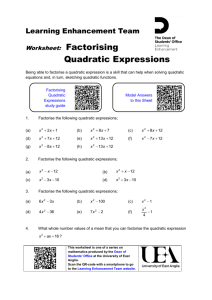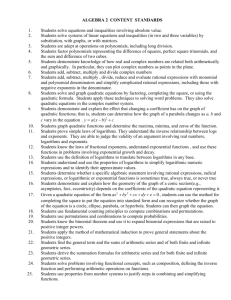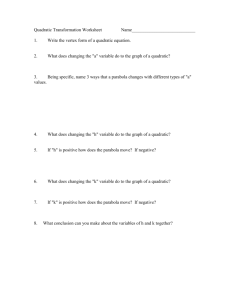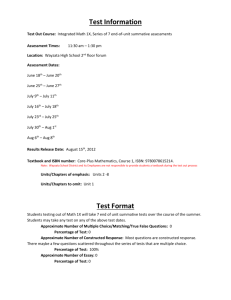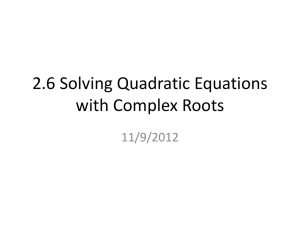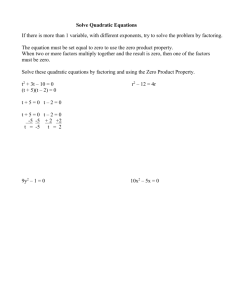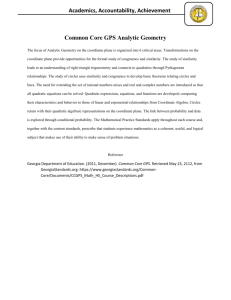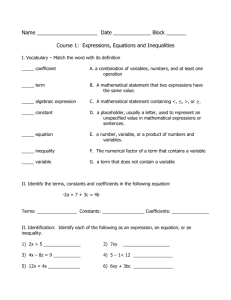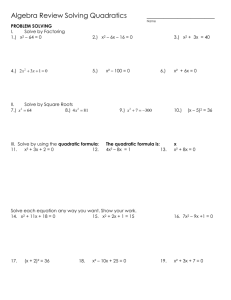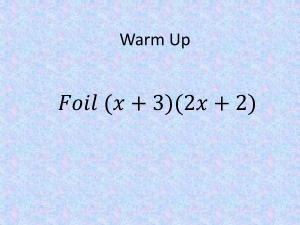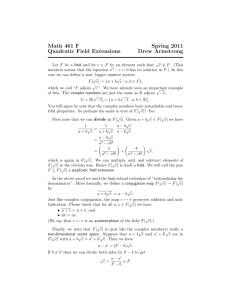x - Social Circle City Schools
advertisement
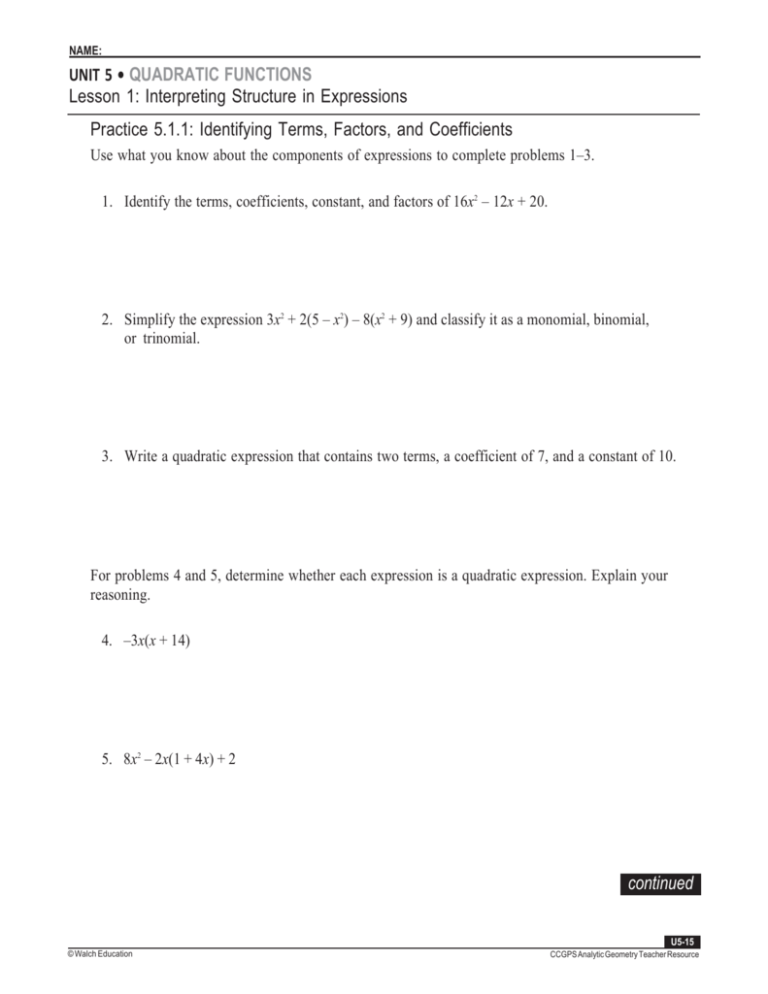
NAME: UNIT 5 • QUADRATIC FUNCTIONS Lesson 1: Interpreting Structure in Expressions Practice 5.1.1: Identifying Terms, Factors, and Coefficients Use what you know about the components of expressions to complete problems 1–3. 1. Identify the terms, coefficients, constant, and factors of 16x2 – 12x + 20. 2. Simplify the expression 3x2 + 2(5 – x2) – 8(x2 + 9) and classify it as a monomial, binomial, or trinomial. 3. Write a quadratic expression that contains two terms, a coefficient of 7, and a constant of 10. For problems 4 and 5, determine whether each expression is a quadratic expression. Explain your reasoning. 4. –3x(x + 14) 5. 8x2 – 2x(1 + 4x) + 2 continued U5-15 © Walch Education CCGPS Analytic Geometry Teacher Resource NAME: UNIT 5 • QUADRATIC FUNCTIONS Lesson NAME:1: Interpreting Structure in Expressions UNIT 5 • QUADRATIC FUNCTIONS Lesson 1: Interpreting Structure in Expressions For problems 6–10, write an algebraic expression. Identify the terms, coefficients, and constants of the given expressions. Determine whether the expression is quadratic and explain your reasoning. 6. the product of 7 and the square of x, increased by the difference of 5 and x2 7. half the sum of 12 and x2 decreased by one-third x 8. The perimeter of a square is the product of 4 and the length of its side, s. 9. The surface area of a cube is the product of 6 and the square of the side length, s. 10. The volume of a sphere with radius r is four-thirds times the product of and the cube of the radius. U5-16 © Walch Education CCGPS Analytic Geometry Teacher Resource
